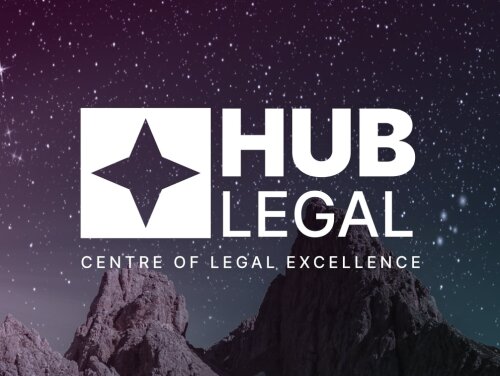Best Oil, Gas & Energy Lawyers in Vilnius
Share your needs with us, get contacted by law firms.
Free. Takes 2 min.
List of the best lawyers in Vilnius, Republic of Lithuania
About Oil, Gas & Energy Law in Vilnius, Republic of Lithuania
Oil, Gas & Energy law in Vilnius, Republic of Lithuania, encompasses a wide array of regulations and standards that govern the exploration, production, and distribution of energy resources. As a member of the European Union, Lithuania adheres to strict environmental and safety regulations, which impact the development and management of its energy sector. The country's strategic focus is on energy independence and sustainability, increasing its reliance on renewable sources alongside oil and gas to achieve these goals.
Why You May Need a Lawyer
Legal assistance may be necessary in several situations involving Oil, Gas & Energy in Vilnius, Republic of Lithuania. Common circumstances include:
- Negotiating and drafting contracts for the exploration and production of energy resources.
- Ensuring compliance with environmental regulations and obtaining necessary permits.
- Resolving disputes related to energy infrastructure projects.
- Advising on mergers and acquisitions within the energy sector.
- Addressing legal issues related to energy taxation and tariffs.
- Protecting intellectual property related to new energy technologies.
- Providing compliance advice on health and safety regulations in energy operations.
Local Laws Overview
The legal framework regarding Oil, Gas & Energy in Vilnius is shaped both by national legislation and European Union directives. Key aspects include:
- Licensing and Permits: Companies must obtain specific licenses for exploration and production, which are subject to stringent environmental assessments.
- Environmental Protection: Laws enforce rigorous environmental standards to minimize the ecological impact of energy projects.
- Energy Market Regulation: The market is regulated to ensure competitive practices and secure energy supply. This includes support for renewable energy adoption.
- Safety Standards: Companies must comply with health and safety regulations aimed at protecting workers and the public.
- Taxation and Royalties: The government imposes taxes and royalties on energy resources, influencing the economic viability of projects.
Frequently Asked Questions
What is the process to obtain a permit for oil exploration in Lithuania?
You must submit an application to the Lithuanian Geological Survey, which oversees licensing. The process involves assessments of environmental impact and technical capabilities.
How does Lithuania's commitment to renewable energy impact the oil and gas industry?
The government encourages a balanced approach, promoting renewable energy while maintaining the oil and gas sector under stringent environmental regulations to ensure sustainability and energy security.
What are the typical contract terms for energy project partnerships?
Contract terms often address scope of work, ownership rights, risk management, dispute resolution, and compliance with local laws and regulations.
Can foreign companies invest in Lithuania's energy sector?
Yes, foreign investment is welcomed, subject to compliance with national regulations and strategic guidelines focusing on energy security and sustainability.
How are energy projects taxed in Lithuania?
Energy projects are subject to corporate taxes, value-added tax (VAT), and specific energy-related taxes, such as those on emissions or resource extraction.
What legal protections exist for intellectual property in the energy sector?
Patents, trade secrets, and copyright laws protect intellectual property related to new technologies and innovations within the energy sector.
Are there any incentives for renewable energy projects?
The government provides incentives such as subsidies, tax reductions, and feed-in tariffs to promote renewable energy projects.
How are environmental impacts assessed for energy projects?
Environmental impact assessments (EIAs) are mandatory for major projects, requiring detailed analysis to mitigate negative effects.
What regulations exist for energy distribution and pricing?
The National Energy Regulatory Council regulates energy distribution and pricing to ensure fair market practices and protect consumer interests.
How can disputes in the energy sector be resolved?
Disputes are generally resolved through arbitration or litigation, with options for mediation to reach amicable settlements. Legal counsel can guide these processes.
Additional Resources
For more information and assistance, consider the following resources:
- The Ministry of Energy of the Republic of Lithuania: The primary government body responsible for energy policy and regulations.
- The Lithuanian Geological Survey: Manages the licensing process for exploration and production activities.
- The National Energy Regulatory Council: Oversees market regulation and consumer protection within the energy sector.
Next Steps
If you require legal assistance in Oil, Gas & Energy in Vilnius, consider the following steps:
- Consult with a specialized law firm that has expertise in the local energy sector to evaluate your specific needs.
- Review your legal obligations and rights under Lithuanian law with professional counsel.
- Consider joining industry associations or attending relevant conferences for networking and up-to-date information.
- Stay informed about legislative changes impacting the energy sector by subscribing to newsletters or consulting with legal experts regularly.
Lawzana helps you find the best lawyers and law firms in Vilnius through a curated and pre-screened list of qualified legal professionals. Our platform offers rankings and detailed profiles of attorneys and law firms, allowing you to compare based on practice areas, including Oil, Gas & Energy, experience, and client feedback.
Each profile includes a description of the firm's areas of practice, client reviews, team members and partners, year of establishment, spoken languages, office locations, contact information, social media presence, and any published articles or resources. Most firms on our platform speak English and are experienced in both local and international legal matters.
Get a quote from top-rated law firms in Vilnius, Republic of Lithuania — quickly, securely, and without unnecessary hassle.
Disclaimer:
The information provided on this page is for general informational purposes only and does not constitute legal advice. While we strive to ensure the accuracy and relevance of the content, legal information may change over time, and interpretations of the law can vary. You should always consult with a qualified legal professional for advice specific to your situation.
We disclaim all liability for actions taken or not taken based on the content of this page. If you believe any information is incorrect or outdated, please contact us, and we will review and update it where appropriate.












